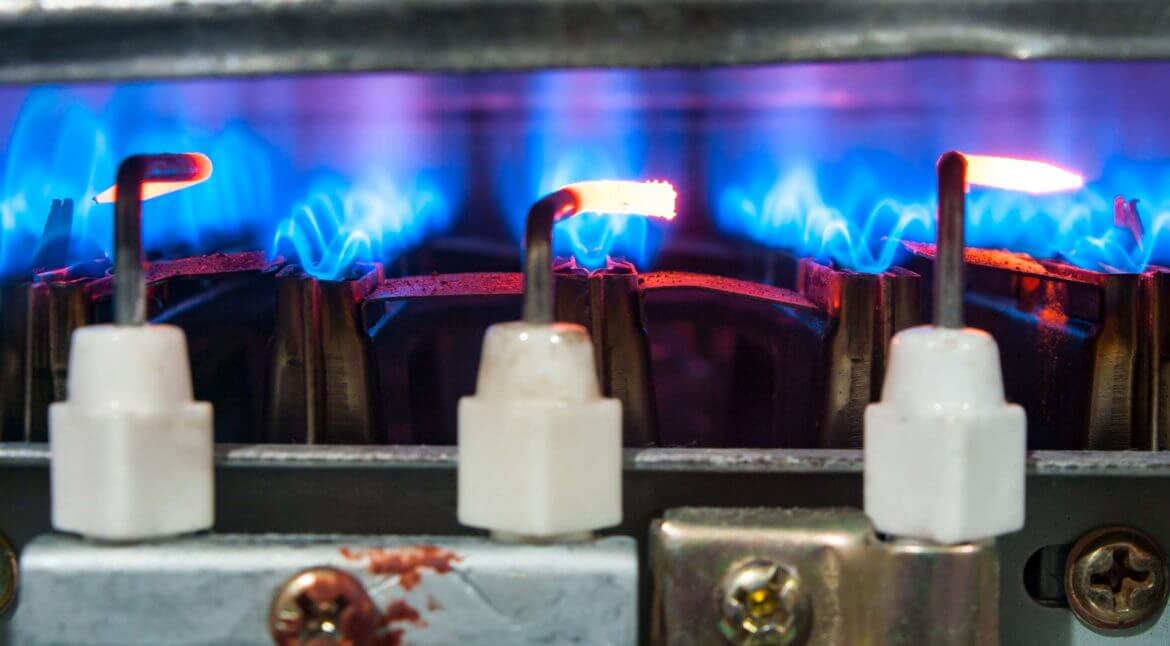A gas safety inspection is conducted by a trained professional, like those affiliated with Plumbers 911, and it includes a check of your home’s gas-operated equipment, appliances, gas lines, vents and chimneys. The inspection also includes a measurement of gas throughout your home.
Even if a gas safety check is not mandatory in your area, performing these inspections at least once a year is highly recommended in order to protect yourself and your loved ones from potential carbon monoxide poisoning or an explosion.
A safety inspection at the start of cold weather season will ensure your system is safe and working properly for the increased usage that lies ahead.
Please note: If you smell gas in your home, immediately exit the building and call 911 to report a gas leak. You should also call the gas company and alert them to the situation. Do not re-enter the house until you are cleared to do so by the proper authorities.
Ensure your safety
The primary reason for homeowners to have their gas line inspected is to ensure the safety of their household. Gas leaks can lead to severe consequences, including sickness, injury or death.
Annual inspections can detect leaks, worn-out connections, or faulty components, and allow homeowners to take prompt action and prevent catastrophic incidents such as fire or explosion.
Natural gas is odorless, but the gas company adds an odorant called mercaptan, which gives natural gas a distinctive smell, similar to rotten eggs or sulfur.
While this smell is a big clue to a potential gas leak, there could be other warning signs.
In some cases, where a low-level leak exists, you may not smell anything but could experience some of the following symptoms:
- Headaches
- Dizziness
- Fatigue
- Nausea
- Irregular breathing
- Severe headaches
Should anyone in your home experience these symptoms, we recommend you call Plumbers 911 as soon as possible to be referred to a licensed, bonded and insured contractor in your area who will inspect your home’s gas appliances for a low-level natural gas leak.
Early detection of problems
Gas line issues are not always apparent. Small leaks or damaged pipes can go unnoticed for extended periods, leading to potential dangers.
By scheduling an annual inspection with certified Plumbers 911 affiliated contractors, homeowners can rest assured these problems will be identified early and prevent them from escalating into major expensive or potentially deadly issues.
Extending gas line lifespan
Regular inspections and maintenance also can extend the lifespan of a gas line. Over time, natural wear and tear can cause pipes to corrode or develop leaks. By identifying and addressing these issues early on, you can prevent the need for costly repairs or even complete replacements.
Save yourself the headache and financial burden down the road, call Plumbers 911 today. Their affiliated contractors have undergone years of training and certifications to ensure they can effectively install and repair your home’s gas line if needed.
Protect property value
Maintaining a safe and well-functioning gas line is crucial for preserving the value of a property. When it comes time to sell, potential buyers will appreciate knowing the gas line has been regularly inspected and is in good condition.
This can give homeowners a competitive edge in the real estate market and potentially lead to higher offers. Invest in the value of your home, contact Plumbers 911 to connect with a licensed, bonded and insured contractor today.
Call Plumbers 911 today to get your gas appliances inspected
As responsible homeowners, it is essential to prioritize the regular inspection of gas lines. By doing so, you can ensure the safety of your household and minimize the risk of a leak. Investing in gas line inspections is an investment in the safety and well-being of your home and loved ones.
Plumbers 911 is a referral service affiliated with the best local plumbing contractors who are licensed, bonded and insured. They employ highly qualified plumbing professionals who receive over 10,000 hours of training and submit to rigorous background checks.


